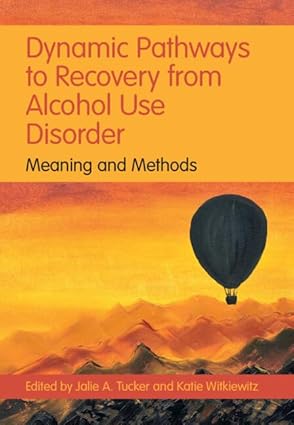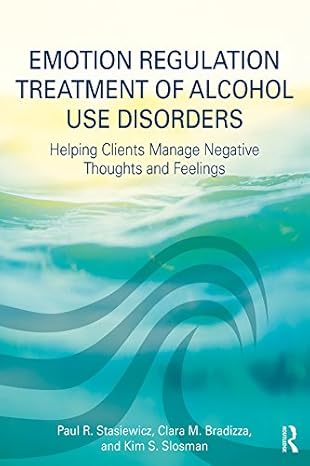Alcohol
Alcohol is a central nervous system depressant. This means that it is a drug that slows down brain activity. It can change mood, behavior, and self-control. It can cause problems with memory and thinking clearly. Alcohol can also affect coordination and physical control.
In addition to the effects on the brain, drinking too much – on a single occasion or over time – can take a serious toll on a person's overall health.
From Our Collection
Alcohol’s Effects on Your Health
Cardiovascular problems that may arise include:
- Cardiomyopathy – Stretching and drooping of heart muscle
- Arrhythmias – Irregular heart beat
- Stroke
- High blood pressure
Heavy drinking takes a toll on the liver, and can lead to a variety of problems and liver inflammations including:
- Steatosis, or fatty liver
- Alcoholic hepatitis
- Fibrosis
- Cirrhosis
Alcohol causes the pancreas to produce toxic substances that can eventually lead to pancreatitis, a dangerous inflammation in the pancreas that causes its swelling and pain (which may spread) and impairs its ability to make enzymes and hormones for proper digestion.
According to the National Cancer Institute (NCI), clear patterns have emerged between alcohol consumption and increased risks of certain types of cancer:
- Head and neck cancer, including oral cavity, pharynx, and larynx cancers.
- Esophageal cancer, particularly esophageal squamous cell carcinoma. In addition, people who inherit a deficiency in an enzyme that metabolizes alcohol have been found to have substantially increased risks of esophageal squamous cell carcinoma if they consume alcohol.
- Liver cancer.
- Breast cancer: Research has shown an important association between alcohol consumption and breast cancer—even one drink per day can increase a woman's risk for breast cancer by 5% to 15% compared to women who do not drink at all.
- Colorectal cancer.
Sources: MedlinePlus. 2024, January. Alcohol. Retrieved from https://medlineplus.gov/alcohol.html on 2024, 12 July.
NIAAA. Understanding Alcohol's Effects on the Body. Retrieved from https://www.niaaa.nih.gov/alcohols-effects-health/alcohols-effects-bodyon 2024, July 12.
Research & Data
- Alcohol Research Group: National Alcohol Research Center
- Alcohol Research: Current Reviews
An open-access, peer-reviewed journal published by the National Institute on Alcohol Abuse and Alcoholism (NIAAA) at the National Institutes of Health. As of 2020, ARCR has published articles on a continuous, rolling basis, comprising one virtual issue per yearly volume.
- Alcohol, Other Drugs, and Health: Current Evidence
Alcohol, Other Drugs, and Health: Current Evidence is a free online newsletter summarizing the latest clinically relevant research on substance use and health.
- Behavioral Risk Factor Surveillance System (BRFSS)
BRFSS tracks a variety of health risks in the United States. Users may search for data from interactive databases that provide prevalence data on health risks such as alcohol and tobacco use, and follow trends in behaviors such as binge drinking. Trends and Prevalence data are viewable by state or nationwide. Maps illustrate health risks at national, state and local levels.
- Connecticut Data Collaborative
Users may search by location or topic. Topic selections include: Civic vitality, Demographics, Economy, Health, Education, Housing, and Safety. The Health category includes data sets on mental health, treatment admissions, substance use, mortality, and tobacco use.
- Connecticut SEOW Prevention Data Portal
Search, view, and access 200+ indicators relevant to substance use/misuse, mental health, suicide, gambling, and social determinants of health. Explore 30+ data sets relevant to behavioral health, each with multiple visualization capabilities, downloadable data, and metadata.
- Data on Excessive Alcohol Use (CDC)
These data show how much and how often people binge drink in the United States, and its high costs to our nation.
- Hospitalization Statistics - CT Department of Public Health
This site includes summary data & tables for causes of hospitalization, by age grouping & gender. Includes mental disorders.
- Mothers Against Drunk Driving (MADD)
MADD's website includes statistics on the impact of drunk driving.
- NHTSA Research
NHTSA's research offices are the Office of Vehicle Safety Research and the Office of Behavioral Safety Research. The Office of Vehicle Safety Research's mission is to strategize, plan, and implement research programs to continually further the agency's goals in reduction of crashes, fatalities, and injuries. Research is prioritized based on potential for crash/fatality/injury reductions and is aligned with Congressional Mandates, along with DOT and NHTSA goals. The Office of Behavioral Safety Research studies behaviors and attitudes in highway safety, focusing on drivers, passengers, pedestrians, and motorcyclists, and uses that to develop and refine countermeasures to deter unsafe behaviors and promote safe alternatives.
- PubMed
PubMed comprises more than 20 million citations for biomedical literature from MEDLINE, life science journals, and online books. Citations may include links to full-text content from PubMed Central and publisher websites.
- Research Data, Measures & Resources - NIDA
Links to various NIDA publications, databases, surveillance, prevention & treatment resources, and more.
- SAMHSA Data
Find data and reports on mental health, substance use treatment, and drug use from sources that include: the National Survey on Drug Use and Health (NSDUH), Treatment Episode Data Set (TEDS), National Survey of Substance Abuse Treatment Services (N-SSATS), National Mental Health Services Survey (NMHSS), and more.
- The Alcohol Policy Information System (APIS) Database
A project of the National Institute on Alcohol Abuse and Alcoholism, APIS is an electronic resource that provides authoritative, detailed, and comparable information on alcohol-related policies in the United States, at both State and Federal levels. Designed primarily as a tool for researchers, APIS is intended to encourage and facilitate research on the effects and effectiveness of alcohol-related policies.
- The Connecticut School Health Survey
- The Youth Risk Behavior Surveillance System (YRBSS)
The YRBSS monitors health risk behaviors in youth that contribute to leading causes of death, disability and social problems. Monitored behaviors include: tobacco use, diet, physical activity, alcohol and drug use, sexual behavior, and behaviors that contribute to unintentional injury or violence.
Screening Tools
- Alcohol Screening (AlcoholScreening.org)
- Alcohol Screening and Brief Intervention Efforts (CDC)
- Measures (University of Rhode Island)
- Planning and Implementing Screening and Brief Intervention for Risky Alcohol Use: A Step-by-Step Guide for Primary Care Practices (CDC)
- Screening and Assessment Tools Chart (NIDA)
- Substance Use Screening & Assessment Instruments Database (Alcohol & Drug Abuse Institute - University of Washington)
Self-Help Groups
- Al-Anon / Alateen Family Groups of Connecticut
- Alcoholics Anonymous
- Alcoholics Anonymous - Connecticut
- Connecticut Community for Addiction Recovery (CCAR)
- Families Anonymous
- Helping Families Help
- Join Rise Be: A Peer-Run Initiative for Young People
- LifeRing Secular Recovery
- Smart Recovery
- Women for Sobriety, Inc.
Apps
Alcohol and Your Brain: A Virtual Reality Experience
From NIAAA. An interactive activity for youth ages 13 and older to learn about alcohol’s effects on five areas of the brain.
Learn MoreSober Living
A FREE personal recovery record that can help track and share your journey of recovery. Designed for iPad.
App StoreTry Dry
The app for the Dry January challenge and beyond.
Learn More
Locate a Treatment Facility
Videos
Podcasts
- How to Talk To Teens About Drugs & Alcohol (American Academy of Pediatrics)
What Alcohol Does to Your Body, Brain & Health (Huberman Lab)
Trainings
NIAAA and ITGA Webinar: The Updated College Alcohol Intervention Matrix -- CollegeAIM Research Into Action Webinar: The Evolving Alcohol Market: Tools for Coalition Advocacy (CADCA) The 7-Year Effectiveness of School-Based Alcohol Use Prevention from Adolescence to Early Adulthood (CADCA) - Treatment of Alcohol Use Disorder (ASAM)
- What is Harm Reduction for Alcohol? (NAADAC)
- Women Are Different Webinar Series (ATTC)
Fact Sheets
Curricula & Lesson Plans
- Alcohol and Drug Education
From the U.S. Department of Veterans Affairs (VA)
- Alcohol Education: Safe and Smart
From Everfi: Bring strategies to prevent teenage drinking to your classroom



